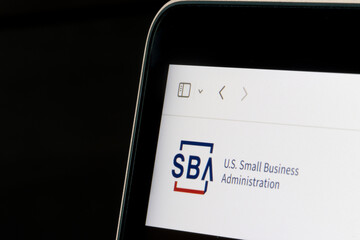Best Homeowners Insurance Providers 2025: Comprehensive Guide
Introduction
Owning a home is one of life’s biggest milestones, but it also comes with significant financial responsibilities. Beyond mortgage payments, maintenance, and property taxes, homeowners must also think about protecting their most valuable asset—their home. That’s where homeowners insurance comes in. As housing costs and living expenses rise in 2025, finding the best homeowners insurance providers has never been more important. YNAB vs Mint vs EveryDollar
The cost of homeowners insurance has been steadily climbing due to inflation, increased natural disasters, and rising construction costs. For many families, even a small increase in monthly premiums can make a noticeable difference in their budgets. At the same time, the right insurance policy provides essential financial protection against fire, theft, liability, and natural disasters—making it a necessity, not a luxury.
This article explores the best homeowners insurance providers in 2025, breaking down what coverage includes, what’s excluded, how much it costs, and how to choose the right company. Whether you’re a first-time homeowner or an experienced property owner, this guide will help you make an informed decision about protecting your home without overspending. Private Health Insurance Comparison
What is Homeowners Insurance and Why It Matters?
Homeowners insurance is a type of property insurance that protects your house and belongings from unexpected events. Beyond simply repairing or rebuilding a home after a disaster, the right policy offers multiple layers of financial protection. Cheapest Car Insurance Companies 2025
-
Financial Security: If your home is damaged by fire, storm, or theft, insurance helps cover repair or replacement costs that would otherwise be overwhelming.
-
Legal Protection: Many policies include liability coverage, which protects you if someone gets injured on your property and sues.
-
Peace of Mind: For most people, their home is their largest investment. Homeowners insurance ensures that investment is protected from unpredictable risks. Best Stock Trading Platforms 2025
Without coverage, a single disaster could wipe out years of hard-earned savings. That’s why choosing the right provider is just as important as selecting the right policy.
How Does Homeowners Insurance Work?
Homeowners insurance operates on a simple principle: you pay premiums regularly, and in exchange, the insurance company covers losses if something happens to your home. However, the details matter. Cheap Health Insurance Quotes Online
Premiums and Deductibles
-
Premium: The monthly or annual cost of maintaining your policy.
-
Deductible: The amount you pay out of pocket before insurance coverage kicks in.
Claims Process
-
File a claim after a covered loss (e.g., fire damage).
-
Insurance company sends an adjuster to assess damages.
-
Approved claims are paid out, minus your deductible.
Options for First-Time Homeowners
New homeowners often face higher premiums if their property is in a high-risk area. However, they can save by bundling policies (home + auto), improving home security, or raising deductibles. Best Personal Finance Software for Families in 2025
Coverage Scope
Policies typically cover:
-
Dwelling (structure of your home)
-
Personal property (furniture, electronics, clothes)
-
Liability (if someone is injured on your property)
-
Loss of use (living expenses if your home becomes uninhabitable)
How Much Does Homeowners Insurance Cost in 2025?
The cost of homeowners insurance varies widely depending on multiple factors.
-
National Average: In 2025, the average homeowners insurance premium in the U.S. is around $1,700 annually ($140–$150 per month).
-
Regional Differences: States prone to hurricanes (Florida, Louisiana) or wildfires (California, Colorado) tend to have higher premiums.
-
Personal Factors: Your credit score, claims history, home age, and security systems also impact rates.
For example, a newly built brick home in Ohio may cost $1,200 per year to insure, while a similar property in Florida could exceed $3,000 due to hurricane risk.
Types of Homeowners Insurance Policies
Not all homeowners insurance policies are created equal. The type of policy you choose determines the coverage scope.
-
HO-1 Basic Form: Covers a limited set of named perils like fire or theft. Rarely offered today.
-
HO-2 Broad Form: Provides broader coverage but still limited to specific perils.
-
HO-3 Special Form: The most common policy type, covering your home against all perils except exclusions.
-
HO-4 Renters Insurance: Covers personal belongings and liability for renters.
-
HO-5 Comprehensive Form: Offers the most extensive coverage for both dwelling and personal property.
-
HO-6 Condo Insurance: Tailored for condo owners, covering interior walls and personal belongings.
-
HO-8 Older Home Insurance: Designed for historic or older homes where replacement costs exceed market value.
Best Homeowners Insurance Providers 2025
Here are the top companies offering homeowners insurance in 2025:
-
State Farm – Best for nationwide availability, strong financial stability, and excellent claims handling.
-
Allstate – Great bundling discounts (auto + home) and digital tools for policy management.
-
Farmers Insurance – Flexible coverage options and strong local agent support.
-
USAA – Best for military families, offering competitive rates and top-rated customer service.
-
Liberty Mutual – Affordable coverage with unique add-ons like inflation protection.
-
Nationwide – Known for customizable policies and robust discounts.
-
Amica Mutual – Highly rated for customer satisfaction and dividend-paying policies.
-
Progressive (through partners) – Best for online shoppers who want easy comparison tools.
-
Travelers – Good for eco-friendly homes and specialty coverage.
-
Regional Insurers – Smaller companies like Erie Insurance (Midwest) or Auto-Owners Insurance (Southeast) often offer cheaper rates in their regions.
What’s Typically Covered by Homeowners Insurance?
-
Dwelling coverage: Repairs or rebuilds your home.
-
Other structures: Garages, sheds, fences.
-
Personal property: Electronics, clothes, furniture.
-
Liability: Protects you if someone gets injured on your property.
-
Additional living expenses: Covers hotel bills or rental costs if your home is uninhabitable.
What’s Typically Not Covered by Homeowners Insurance?
-
Floods and earthquakes (require separate policies).
-
Wear and tear or poor maintenance.
-
Pest infestations (termites, rodents).
-
Expensive valuables beyond coverage limits (jewelry, art, collectibles).
Benefits of Choosing Affordable Homeowners Insurance
-
Cost Savings: Lower monthly premiums mean more money in your budget.
-
Bundling Discounts: Combine with auto or life insurance for big savings.
-
Flexibility: Ability to adjust deductibles and coverage limits.
Challenges of Buying the Cheapest Homeowners Insurance
-
Higher deductibles may lead to costly out-of-pocket expenses.
-
Limited coverage or exclusions can leave you vulnerable.
-
Customer service quality may be lower with budget insurers.
Application Requirements and Documents Needed
-
Proof of homeownership or mortgage documents.
-
Government-issued ID.
-
Home inspection or appraisal reports.
-
Utility bills or proof of residence.
-
Credit score and claims history.
Top States/Regions with the Cheapest Homeowners Insurance
-
Wisconsin – Low risk of natural disasters.
-
Oregon – Few hurricanes or tornadoes.
-
Utah – Affordable construction costs and low claim rates.
-
Idaho – Rural regions with fewer claims.
-
Maine – Lower average home values and lower risks.
Salary vs. Premium Comparison: Household Impact
| State | Average Income | Average Premium | % of Income Spent |
|---|---|---|---|
| Florida | $60,000 | $3,200 | 5.3% |
| California | $70,000 | $2,800 | 4.0% |
| Ohio | $65,000 | $1,300 | 2.0% |
| Wisconsin | $64,000 | $1,200 | 1.9% |
| Texas | $68,000 | $2,500 | 3.6% |
Step-by-Step Guide: How to Apply for Homeowners Insurance
-
Research coverage needs – Consider location, home value, and risks.
-
Compare quotes – Use online comparison tools or brokers.
-
Check exclusions – Understand what’s not covered.
-
Submit application – Provide documents online or in person.
-
Finalize coverage – Review terms and activate policy.
Websites and Tools to Find the Best Homeowners Insurance
-
Policygenius – Compares multiple insurers quickly.
-
The Zebra – Easy-to-use platform for home and auto bundles.
-
Insurify – Provides side-by-side comparison quotes.
-
Company websites – Direct applications often come with exclusive discounts.
FAQs
Q1. Do I need homeowners insurance if I own my home outright?
Yes, while not legally required, it protects your property from major risks.
Q2. Can I lower my premiums?
Yes, by bundling, improving home security, raising deductibles, or maintaining good credit.
Q3. How much coverage do I need?
Enough to fully rebuild your home and replace belongings, plus liability protection.
Q4. Can I switch providers anytime?
Yes, but check cancellation fees and ensure continuous coverage.
Conclusion
Finding the best homeowners insurance providers in 2025 is about more than just cost—it’s about balance. The cheapest policy may save you money upfront, but it could leave you exposed to costly gaps in coverage. On the other hand, a premium provider might cost more but offer better service, broader protection, and greater peace of mind.
By comparing providers, understanding coverage options, and tailoring policies to your needs, you can protect your home affordably and responsibly. Whether you’re in a high-risk coastal state or a low-risk Midwestern region, the right insurance company is out there to safeguard your investment for years to come.






